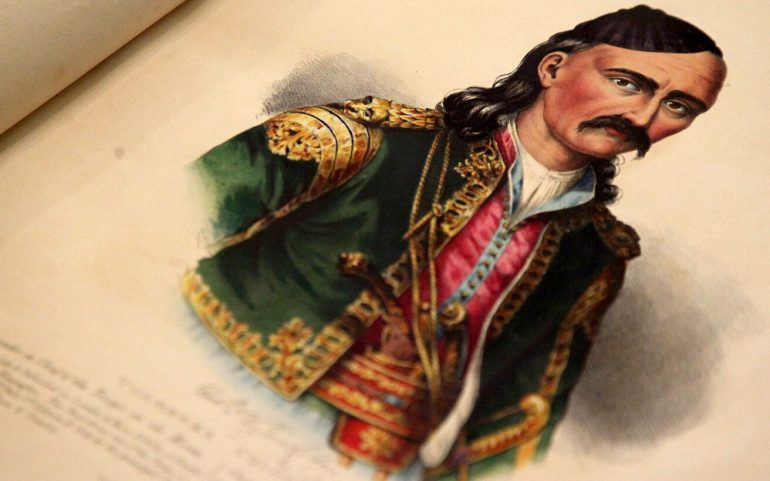It can the recent aphorism of Mitsotakis, Kerameos and Hardalia by the former metropolitan of Kalavrita Ambrosio, may have caused laughter or even sadness to many, but at one time this particular practice of the church caused terror and fear.
Once upon a time, aphorism and the curses that accompanied it were something that no one wanted to face. Nobody wanted to go against her decisions church.
Such was the fear caused by the aphorism that there were cases when the faithful were forced to turn their backs even on people they worshiped or who were a support for them in difficult times.
Perhaps the most typical such case is that of Kolokotronis. The legendary Old man of Moria He was confronted with the aphorism of the Patriarchate and especially with the fear that he caused to the Greeks who stopped providing, and to him but also to the thieves and boatmen who were with him, any help resulting in their release within a short time.
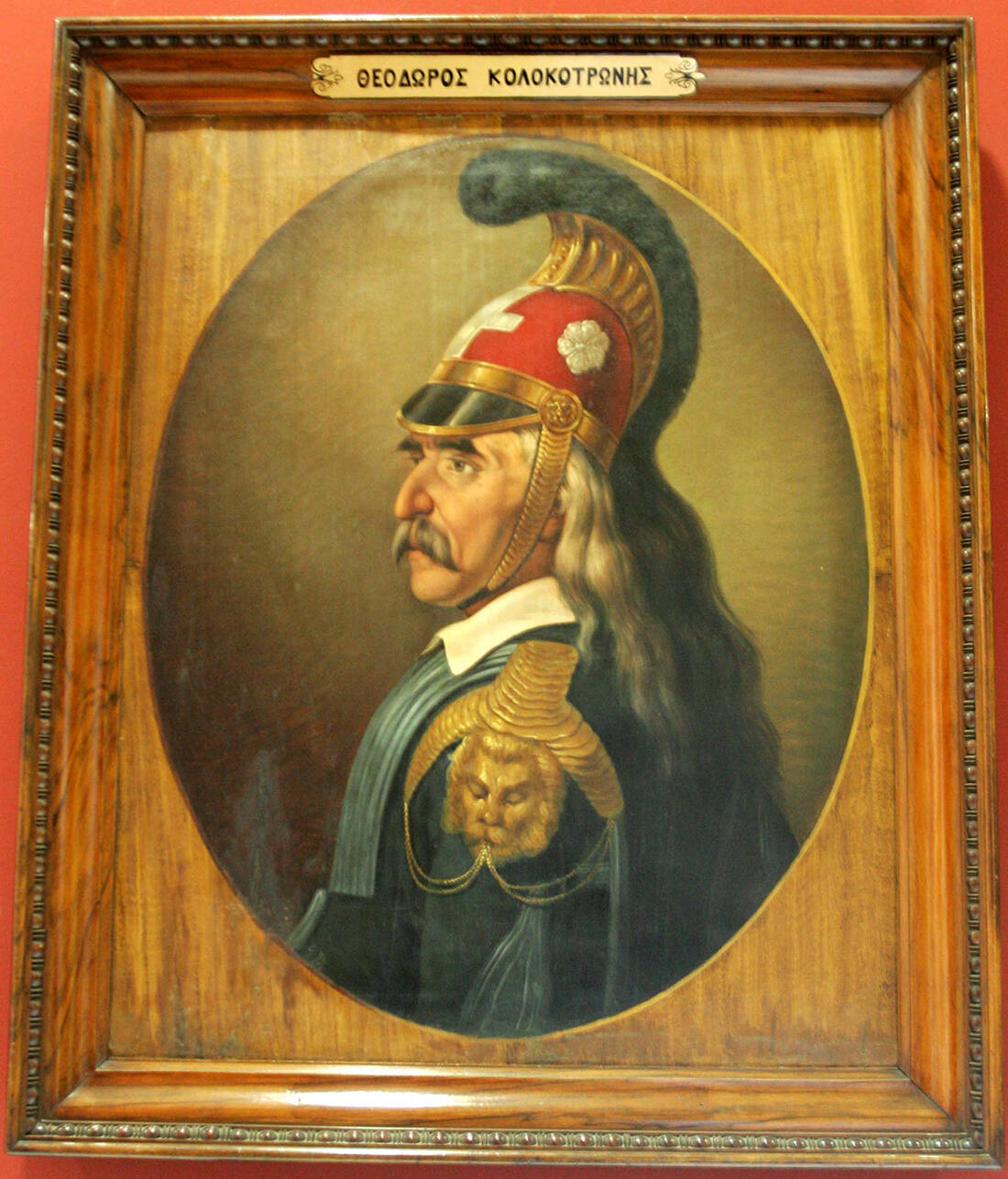
We are in 1806. About 15 years before its outbreak Revolution everyone knew it would not be long. The Turks also knew this, who wanted to get rid of the "outbreaks" that would cause the uprising and especially the people who could mobilize the enslaved Greeks.
Not unjustly as it turned out a few years later, their first target was Morias and of course Kolokotronis and his men.
The Sultan sends a decree to exterminate the thieves and chariots of Moria. This would not scare anyone. This decree, however, is accompanied by the official aphorism by both the Patriarchate Theodorou Kolokotroni as well as his men.
Things are clear. No one could offer food, water, shelter or any other help to the people who until that day were their button in any savagery of the Turks.
The nobles of Moria and the church cooperate with the Ottomans and the persecution of Kolokotronis and his men is relentless.
The Old Man of Moria, realizing that the circle is narrowing dangerously, tells them to resort to Zakynthos until things calm down and then they return to get their revenge.
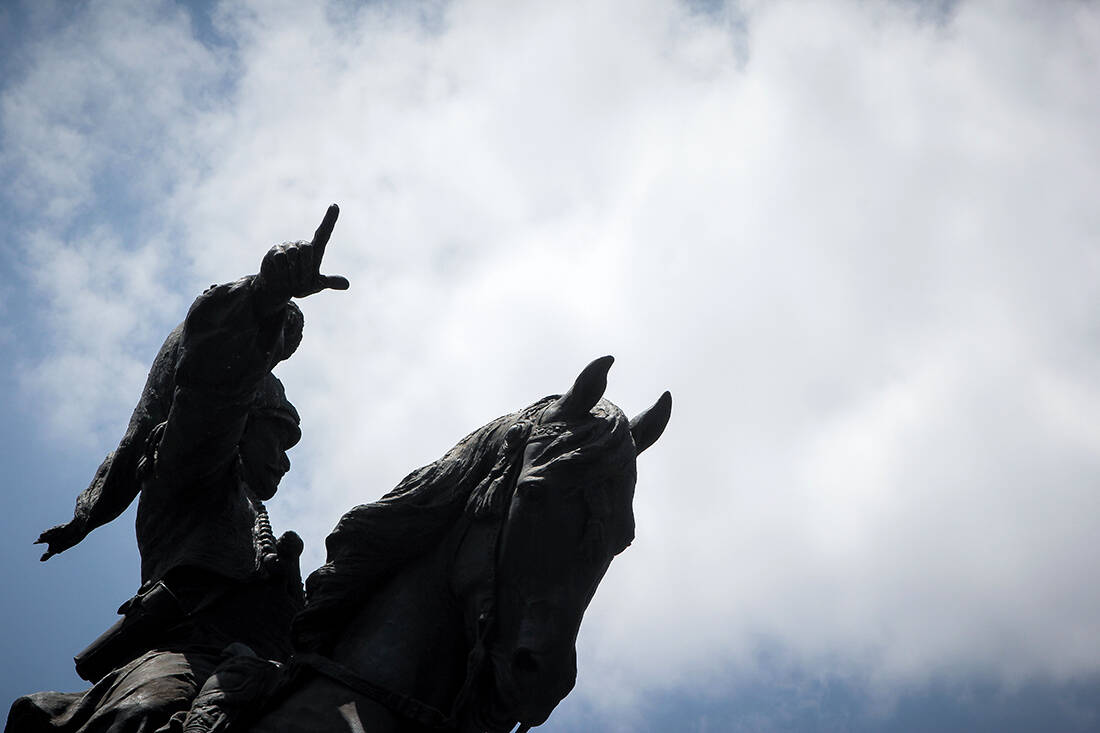
Most refused and decided to fight against the Turks and their local collaborators. No matter how much Kolokotronis tried to persuade them, this was not possible. At the same time, the Turks, for example, tortured and executed some citizens who were suspected of providing assistance to the thieves of Kolokotronis.
This resulted in the spread of fear and terror. The villages of Moria were turned into traps and within a short time all those who did not follow Kolokotronis in Zakynthos died tragically.
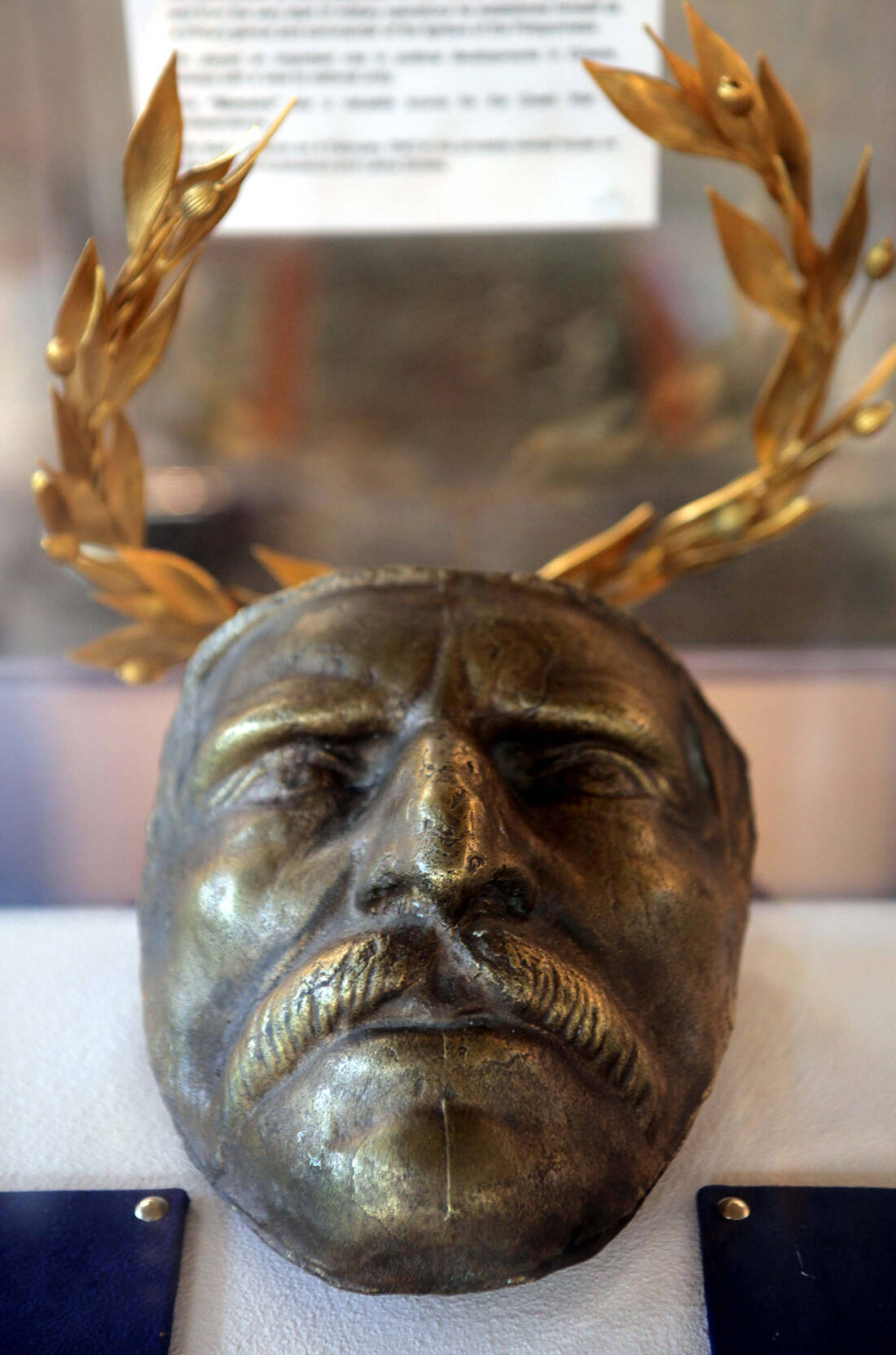
The Elder of Moria wrote in his memoirs about this difficult period: «⁇ Ἀναφορὰ τῶν Τούρκων συμφωνεῖ μὲ τὰς πληροφορίας τοῦ Καμπινέτου τῆς Γαλλίας, ὅτι νὰ χαλάσουν τοὺς Καπεταναίους, τοὺς λεγομένους κλέφτας, καὶ τοὺς Καπεταναίους τῶν καραβιῶν, διατὶ μία ἡμέρα ἠμποροῦν. Then the Sultan makes a decree to kill the thief. Ἀφοριστικὸ ἔρχεται τοῦ Πατριάρχου διὰ νὰ σηκωθεῖ ὅλος ὁ λαός, καὶ ἔτζι ἐκινθηκεν ὅλη ἡ Πελοπόννησος, Τοῦρκοι καὶ Ρωμαῖοι, κατὰ τῶν Κολοκοτρωναίων. Τὸν Αὔγουστον ὑπῆγα εἰς Ζάκυνθον. Τὸν Σεπτέμβρη ἐβγῆκα ἔξω, καὶ Ἰανουάριον 1806 ἦλθε τὸ διάταγμα καὶ μᾶς ἐκυνήγησαν. ⁇ Πετιμεζᾶς, ὁ Γιαννιᾶς καὶ ὁ Ζαχαριᾶς ἦτον χαμένοι πρωτύτερα, καὶ εὑρέθηκα μὲ μόνον 150 ».
Kolokotronis was already extremely angry with everyone and especially with the people of the church, the patriarchate and the prelates of Moria. Then came a tragic incident that turned his anger into rage. During the relentless pursuit of Kolokotronis' men, his brother was betrayed by a monk, fell into the hands of the Turks and they executed him.
«⁇ Γιάννης δὲν εὗρε τὸν φίλον του, ἐπῆγε εἰς τοὺς Αἰμυαλούς, μοναστήρι, τοῦ ἔδωκε ἕνας καλόγερος φαγὶ καὶ ἔπειτα ἐπῆγε, ἔδωσε εἴδησιν εἰς τοὺς Τούρκους, ἐπῆγαν, τὸν πολιόρκησαν εἰς wrote the Elder of Moria in his memoirs.
According to testimonies of the time, Kolokotronis took an oath that as soon as he found the opportunity, he would set fire to the specific Monastery. In the end, he did not carry out his threat.
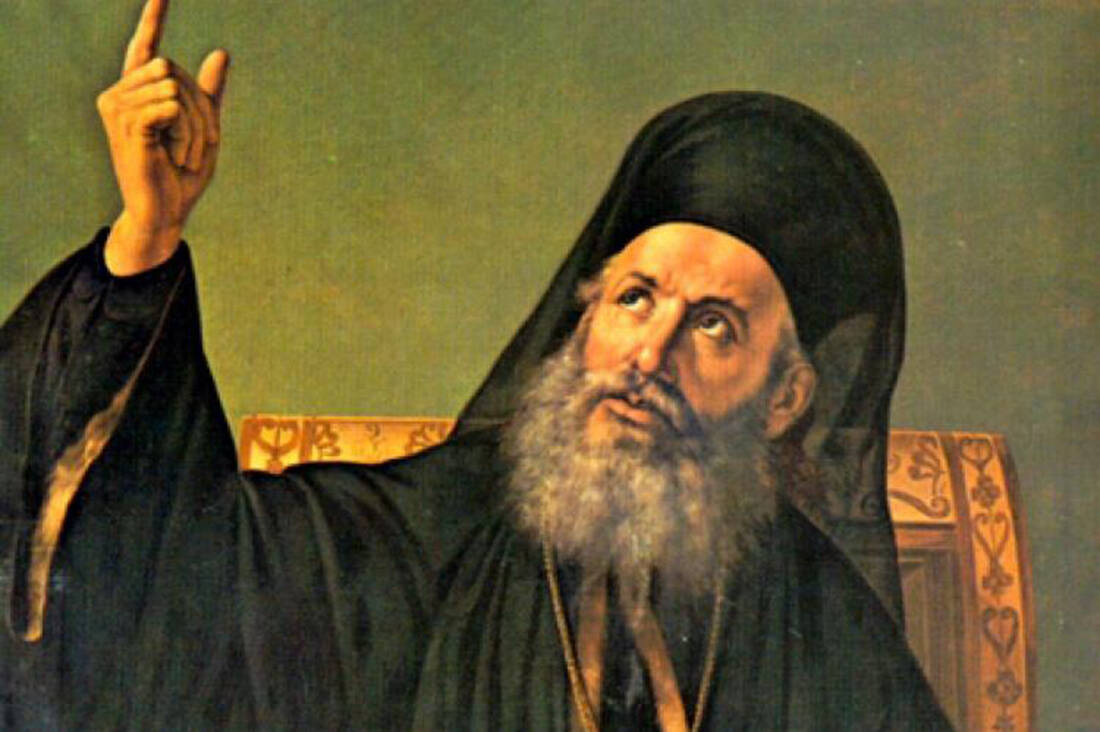
Even the cruel Kolokotronis, however, is given that he was influenced by the aphorism of the controversial patriarch Gregory of Ed in 1806, whom, however, he was never afraid of.
The legend, in fact, wants Kolokotronis, when a corsair was found in Halkidiki, to learn that he was on Mount Athos - in exile from Sultan- Gregory ED and send him a threatening message in which there was the following disgust: "You wrote my betrayal on paper but I will write it on your doll". It is said that the answer of the former and future Patriarch was that what happened was "by divine concession".
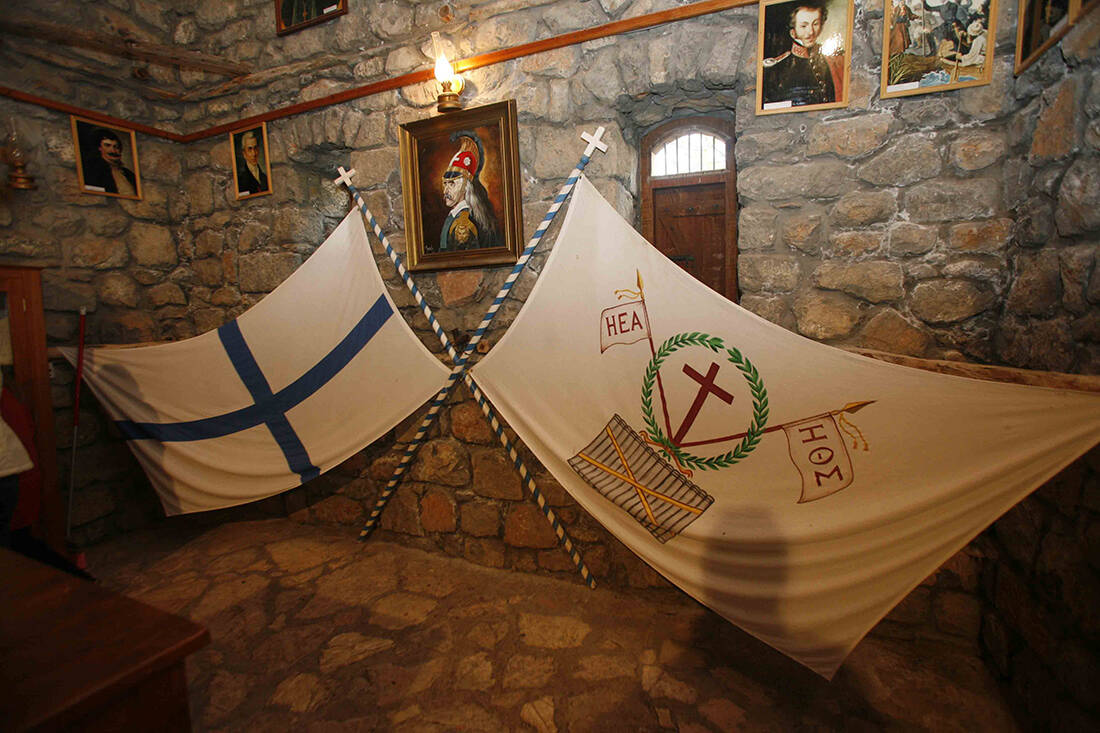
The Sultan knew that his big problem in Moria has a name: Theodoros Kolokotronis. So he asked for his head. Literally.
The legend of the fearless chieftain grew from the moment that Kolokotronis managed to escape the harsh chase and end up in Zakynthos. Every now and then various stories of Geros' new successes appeared and the Sultan became even more furious and sent a firman to the Turkish authorities in Tripoli to end with him.
He asked for Kolokotronis' head, but there was a problem. None of his pursuers knew what his face was like. So various experts killed unsuspecting people and went to the Turks with their heads saying that he was Kolokotronis.
To stop the scourge of swindlers, the Turks tortured and exterminated some of them for example and moved on to plan b!
The Turks may not have known what Kolokotronis's face was like, but they knew that the Old Man of Moria had made a tattoo (had used gunpowder) on the date of his birth.
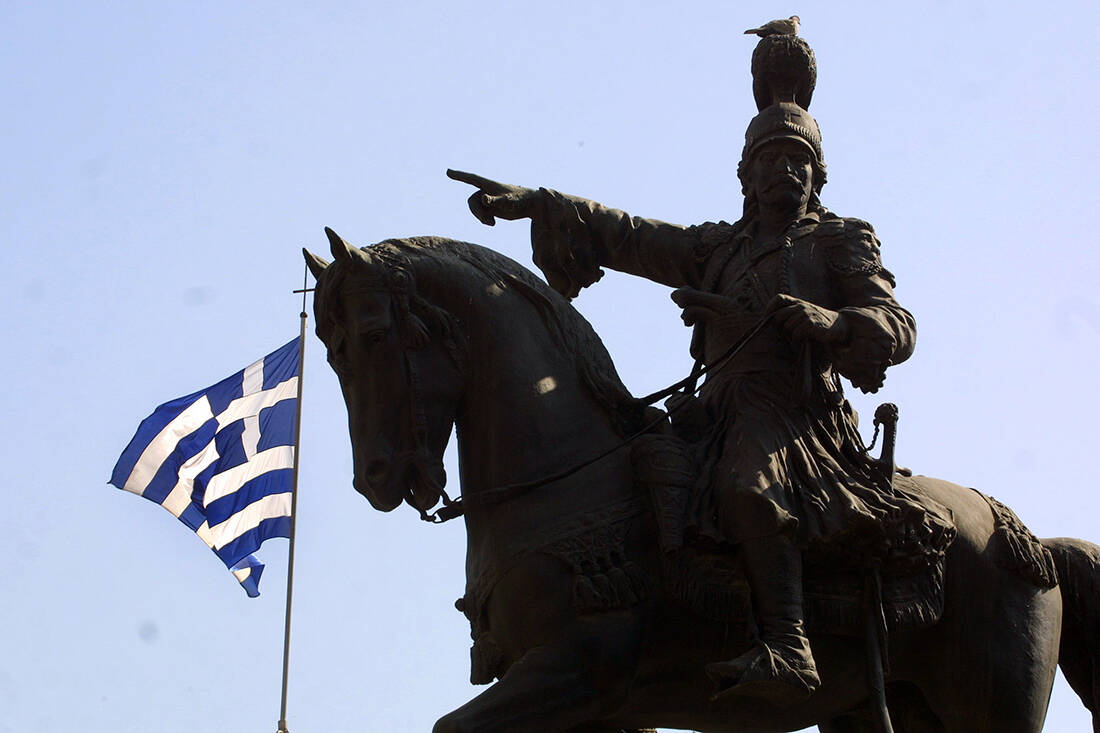
Then, of course, a new round of deception began, with several appearing in the Turkish administration of Tripoli and holding… severed hands which supposedly belonged to Kolokotronis.
After some failed attempts, the Turks realized that catching the deposed and persecuted Kolokotronis would not be an easy task. And their fears proved to be true since a few years later the Elder of Moria returned to his place bringing with him the spark of the Revolution.
